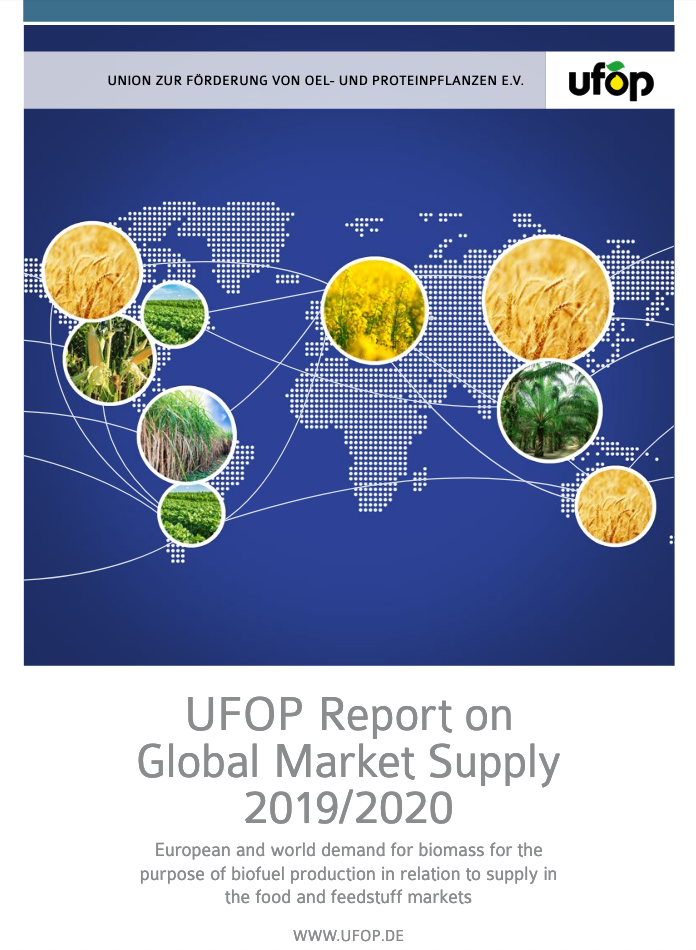
Sustainable Intensification of arable Production for Food Security and Climate Protection
The “Green Deal” starts in the field
Berlin, 16 January 2020. The Union for the Promotion of Oil and Protein Plants (UFOP) would like to take the publication of the fourth edition of the Report on Global Market Supply as an occasion to indicate the particular importance of agriculture in the production of sustainable foodstuffs and renewable raw materials. Climate change dictates more productivity and efficiency while taking the requirements of sustainable production into account at the same time. Biofuels from cultivated biomass play a leading role when these are being produced according to the legal specifications of the Renewable Energy Directive (RED II), emphasises the UFOP.
The Union underscores that the requirements and documentation obligations for proof of the origin of the raw material, certain special criteria and minimum requirements for greenhouse gas saving even in non-member states must be complied with in order to maintain market access in the European Union. RED II is an excellent example for a sustainable “farm-to-tank” strategy, i.e. to ensure sustainability across the entire production process. Exactly this is what UFOP understands to be a national or European bio-economic strategy. Climate change increases the pressure to enable a rapid as possible market access for renewable resources for energy or material utilisation using new or improved legal framework conditions. The regulations for the promotion of e-mobility provide the orientation when it comes to rapidity and funding intensity, demands UFOP.
Sustainable biomass can, both nationally and globally, make a significant contribution towards decarbonising the transport sector and the economy. Research results would therefore have to be put immediately into practice in order to increase productivity and yield security in agricultural production.
UFOP regards the accelerated utilisation of technological progress in plant breeding, plant protection and the digitisation of agricultural production as an important key to sustainable land management. Sustainable development would, however, also have to keep the economy in mind, given that financing this kind of progress should be generated through corresponding producer prices as well. This would not only affect farmers in this country or in the European union, but also in a fundamental way the financing of technological progress as a prerequisite for a world-wide sustainable intensification of agricultural production, emphasises UFOP.
The current Report on Global Market Supply once more underscores that the potential to utilise agricultural commodities is currently not being exhausted. Low prices for cereals, oilseeds, sugar and vegetable oils are the result of a global oversupply. At this price level, sustainable economic activity is not possible, even in the rural regions of Africa. Agriculture lives on economic substance not only in this country, UFOP says. Increasing regulatory requirements would not be offset by adequate value creation to compensate for this. On the contrary: the cultivation of renewable raw materials from cultivated biomass is being gradually put on the shelf, without opening up new sales prospects at the same time, UFOP criticised sharply.
Download report
Download graphics


 Union zur Förderung von Oel- und Proteinpflanzen E.V.
Union zur Förderung von Oel- und Proteinpflanzen E.V.